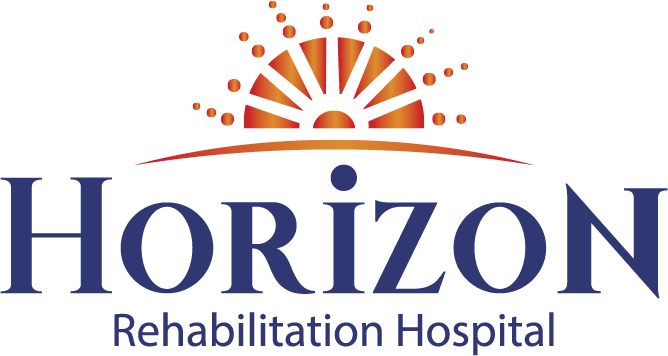Frequently Asked Questions
About Inpatient Rehabilitation
What is acute rehabilitation?
Acute inpatient rehabilitation is a specialized form of rehabilitation care provided in a hospital or dedicated rehabilitation facility for patients who have experienced a significant illness, injury, or surgery that severely impacts their functional abilities. This type of care is intended for patients who need intensive rehabilitation services but are medically stable enough to participate in therapy.
As an acute rehabilitation hospital, Horizon Rehabilitation Hospital draws on the experience and expertise of a team of doctors, nurses, physical, occupational, and speech therapists, psychologists and neuropsychologists, dietitians, case managers, and other clinical and support staff to best meet your needs. Unlike other rehabilitation settings, acute inpatient rehab provides around-the-clock nursing care and access to doctors, ensuring that any medical complications can be promptly managed.
The goal of our multidisciplinary program is to restore as much functional independence as possible and prepare you for a safe return to home or a less intensive care setting.
Why should I choose acute rehabilitation?
Choosing inpatient rehabilitation over a skilled nursing facility largely depends on the level of care and intensity of therapy required. Inpatient rehab provides intensive therapy (at least 3 hours per day, 5-7 days a week), focusing on helping patients recover function and independence quickly. It is ideal for patients recovering from serious conditions such as strokes, traumatic injuries, or major surgeries. In addition, inpatient rehab offers 24/7 access to medical professionals, including rehabilitation specialists, ensuring close monitoring and swift intervention if needed.
The goal of Horizon Rehabilitation Hospital’s comprehensive inpatient rehabilitation program is to restore your ability to live as independently as possible, return to work, or resume everyday activities.
What types of therapy will I receive in an acute rehabilitation hospital?
Patients engage in a minimum of three hours of physical, occupational and/or speech therapies per day, five days a week, with weekend sessions as needed. Depending on a patient’s tolerance and ability to participate, 15 hours of therapy may be provided over a seven-day period. This therapy may include:
- Physical therapy (PT): To improve mobility, strength, balance, and physical function.
- Occupational therapy (OT): To regain the ability to perform daily living activities like dressing, eating, and bathing.
- Speech therapy (ST): For patients with communication, swallowing, or cognitive issues.
The primary goal of this multi-disciplinary approach is to maximize your recovery. The length of stay and the specific therapies provided depend on your individual needs and progress.
About Horizon Rehabilitation Hospital
Does Horizon Rehabilitation Hospital offer private rooms?
At Horizon Rehabilitation Hospital, all of our patient rooms offer a private room and bathroom for your comfort. Patient rooms offer a hospital bed and a reclining chair for out-of-bed seating. Bathrooms are equipped with any adaptive equipment you may need, such as an elevated toilet seat or shower chair and grab bars for your safety.
Can a family member spend the night?
Our rehabilitation nursing staff is here to provide your care and ensure your comfort 24 hours a day. If you require family support in the evening or overnight, please speak to a member of your nursing staff to discuss these arrangements.
Does Horizon Rehabilitation Hospital allow visitors?
Visitors of all ages are welcome at Horizon Rehabilitation Hospital between the hours of 8 AM to 8 PM daily.
About Your Stay
How long can I expect my stay to be?
Your length of stay is based on your medical needs, rehabilitation goals, and progress. Recovery takes time, and you will progress at your own pace. Typically, stays last anywhere from 1-3 weeks, depending on diagnosis, with the goal of providing intensive therapy and preparing you for a safe return home or to a less intensive setting. Your case manager at Horizon Rehabilitation Hospital will work closely with you, your family, and the care team to ensure a smooth and timely discharge.
After discharge, you may continue therapy at home, with home health services, or at an outpatient facility. Based on your rehabilitation team's recommendations, your case manager will help coordinate these arrangements.
What does a typical day look like at Horizon Rehabilitation Hospital?
From morning until evening, our patients are busy working toward their rehabilitation goals. You will participate in therapy, typically divided into morning and afternoon sessions. The skills and strategies you learn in therapy will be reinforced as you move through your day under the care of our nurses and additional team members.
It is important to remember that recovery is an active process. It can be physically and mentally demanding, which is why your schedule will also include time for rest and relaxation, and visits with family and friends.
What items should I bring to rehabilitation?
- Long phone charger
- Eyeglasses lanyard
- Pictures of any adaptive equipment at home (RW, cane, shower chair, grab bars, etc.)
- Zip up jacket
- At least six changes of loose, comfortable clothing
- Adequate supply of socks, undergarments, and pajamas
- Athletic shoes or sturdy shoes with nonskid soles
- Personal items, such as toothbrush, toothpaste, deodorant, glasses, shampoo, razor, shaving cream, etc.
- We recommend that you DO NOT bring valuables such as jewelry, cash, and other non-essential items
- We recommend that you DO NOT bring your home medications; our phamacy staff will distribute any medications you will need.
About Your Discharge
What happens after discharge?
Discharge planning begins at the time of admission. Your Horizon Rehabilitation Hospital team will provide recommendations based on your medical needs, personal goals, and functional abilities. Your case manager will help you and your family coordinate post-discharge arrangements to ensure a safe transition home or to the next level of care.
How will I get home? Is there transportation?
Your case manager will assist you with arranging transportation home if needed. There may be a charge for transportation, depending on your insurance.

